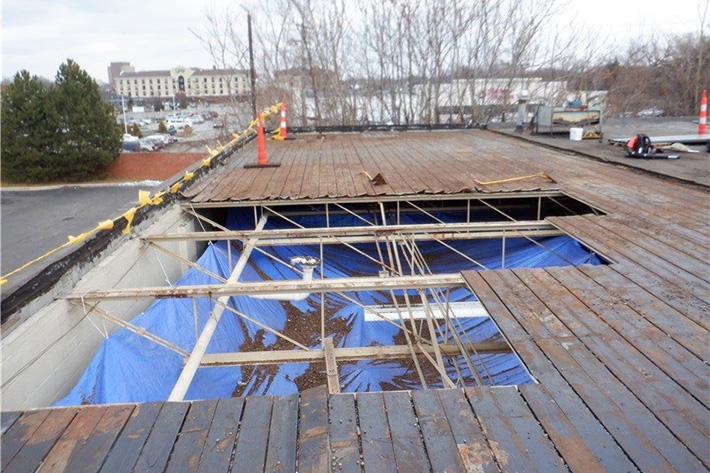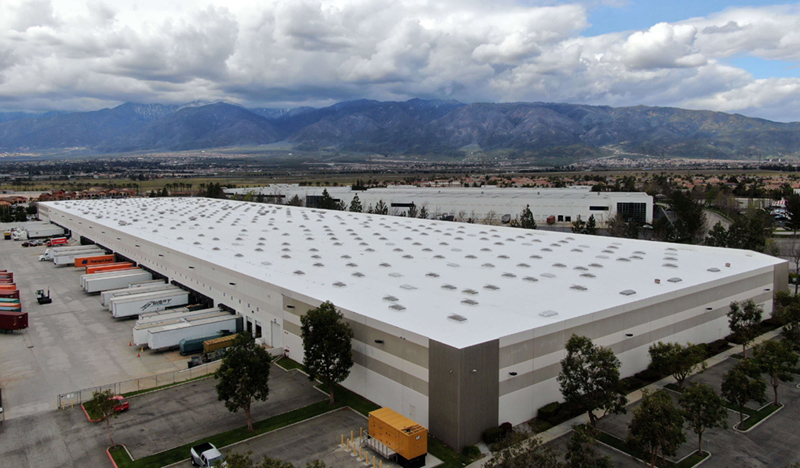Industrial Asbestos Roofing Contractors Sydney Commercial Roofing Systems Sydney
The impact of weather on commercial roof replacement scheduling is profound and multifaceted - Commercial Roof Renovation Sydney. It performs a crucial function in figuring out the feasibility of such projects and may affect timeframes, budgets, and overall project outcomes
Seasonal variations, together with excessive temperatures, heavy rains, and snow accumulation, significantly affect the roofing course of. Roofing materials typically have particular temperature thresholds inside which they can be utilized effectively. For instance, sure adhesives might require warmer temperatures to cure properly, making chilly weather a difficult consider scheduling.
Rain poses one other challenge. Wet materials can lead to issues similar to compromised adhesion and long-term structural integrity issues. Scheduling roof replacements in the course of the wet season may end up in delays and even full halts in work, notably for flat roofs the place pooling water may be a priority.
Roofing Contractors Commercial Sydney Sydney Commercial Building Roof Upgrade
Wind can also be a critical factor to assume about. High winds can pose security dangers for roofing crews and enhance the probability of accidents on site. This necessitates cautious planning to ensure that replacement operations are conducted in safe conditions, further affecting the timeline of the project.
The geographic location of a commercial property plays a serious role in this scheduling dilemma. Areas prone to harsh climates or excessive weather occasions, corresponding to hurricanes, tornadoes, and blizzards, require a unique strategy to scheduling roofing projects. Contractors must be proactive in planning round these potential disruptions.
Moreover, effective communication between the contractor and the property manager is significant. Regular updates about weather forecasts may help make knowledgeable selections concerning when to proceed or halt work. Collaborative planning can lead to extra environment friendly project management and better preparedness for surprising weather occasions.
Industrial Roof Maintenance Sydney Large-Scale Commercial Roof Replacement Sydney

It's also worth noting that delays because of adverse climatic conditions can lead to increased costs. As labor and material costs fluctuate throughout the year, the unique estimates might no longer be viable. This strain on budgets is yet one more facet of the impact of weather on commercial roof replacement scheduling.
Post-replacement points similar to leaks or damages can arise if the roof was not put in beneath optimal circumstances. Inadequate curing or sealing during harsh weather can result in problems that necessitate extra maintenance or repairs quickly after installation. These follow-up issues add to the general prices and may pressure the connection between contractors and shoppers.
Construction timelines usually are not simply affected by the direct impression of weather. Factors such as humidity, temperature variations, and the potential for shock weather events additionally require fixed reassessment of the schedule. Roofing professionals have to account for these variables and stay flexible as they adapt to real-time conditions.
Technological developments have introduced new materials and set up strategies that offer more versatility in challenging weather scenarios. Some roofing methods are designed to be extra resilient against excessive conditions, allowing for greater flexibility in scheduling and execution. This innovation can mitigate a few of the traditional challenges posed by weather variations (Commercial Building Metal Roofing Sydney).
Roof Replacement Services Sydney Sydney Industrial Building Roof Replacement
In summary, the influence of weather on commercial roof replacement scheduling can't be overstated. Proper understanding of seasonal trends and contingencies for opposed circumstances is important for a smooth project. A proactive strategy that emphasizes communication, planning, and flexibility can significantly mitigate the challenges posed by weather impacts.
All stakeholders concerned must perceive that whereas they can click to read anticipate many weather conditions, the unpredictability of nature does exist. This reinforces the significance of having contingency plans in place to deal with any unexpected circumstances that will arise in the course of the roofing project. Adapting to weather-related challenges can save time, prices, and complications in the lengthy run.
Therefore, the mixing of weather issues into the planning and execution of commercial roof replacements not solely facilitates timely project completion but in addition enhances the quality and longevity of the work carried out.
In conclusion, the effect of weather on commercial roof replacement scheduling is a vital factor that have to be managed thoughtfully. It requires a mix of experience, planning, and flexibility to realize successful outcomes while minimizing potential setbacks. By acknowledging these nuances, property managers and roofing contractors can work collectively to guarantee that initiatives proceed as easily as potential, amidst the ever-changing weather patterns they face.
Roof Replacement Specialists Sydney Commercial Roof Renovation Sydney
- Weather patterns considerably affect the supply of roofing crews, as antagonistic situations can result in rescheduling or delays in project timelines.
- Seasonal trends, corresponding to heavy rain or winter storms, dictate essentially the most favorable months for roof replacement, impacting planning and budgeting.
- High humidity ranges can affect the drying instances of materials, necessitating changes in scheduling to make sure correct installation and longevity.
- Wind gusts can pose security dangers, forcing contractors to postpone work to protect workers and materials during set up.
- Extreme temperatures can result in material degradation; thus, roofing initiatives may be scheduled during milder weather to take care of material integrity.
- Unpredictable weather changes may find yourself in elevated costs and resource allocation, requiring contingency planning inside project schedules.
- Local weather forecasts are essential for anticipating delays, making certain timely communication between contractors and property owners about potential rescheduling.
- Weather-related events, like hailstorms, might result in sudden spikes in demand for roof replacements, affecting costs and availability of expert labor.
- Roofing materials usually have particular temperature and moisture necessities throughout installation, influencing the choice of replacement materials primarily based on projected climatic conditions.
- Geographic location plays a vital role, as certain regions experience unique weather patterns that may affect not solely scheduling but additionally the durability of the roofing systems installed.undefinedWhat weather conditions can delay commercial roof replacement?
Severe weather conditions similar to heavy rain, snow, high winds, and extreme temperatures can considerably delay the scheduling of business roof replacement. These situations pose security dangers for workers and may affect the materials' adhesion and longevity.
Best Commercial Roofers Sydney Commercial Building Roofing Solutions Sydney
How does temperature affect roofing materials during installation?
Temperature plays an important role within the curing process of roofing materials. Extreme warmth can cause materials to turn into too soft, whereas very low temperatures may impair their capacity to stick properly. Working within the manufacturer’s beneficial temperature range is crucial for optimal performance.
What is the most effective time of yr for commercial roof replacement?
Generally, late spring to early fall is taken into account one of the best time for commercial roof replacement because of milder click to read temperatures and lowered precipitation. This interval allows for more favorable working circumstances, ensuring a faster and safer installation process.
Roof Replacement Roof Repairs Sydney Sydney Industrial Building Roof Replacement
How can weather forecasts affect scheduling decisions?
Weather forecasts present critical insights for planning roof replacement initiatives. By monitoring forecasts, contractors can modify schedules to minimize work disruptions, thus ensuring each safety and efficiency during the installation.
What precautions should contractors take when climatic conditions change unexpectedly?
Metal Roof Contractors Sydney Commercial Roofing Systems Sydney
Contractors ought to have contingency plans prepared, corresponding to securing materials and tools, and making certain that each one workers are ready to pause work safely. Regular communication about weather adjustments is essential to maintaining safety and project timelines.

Can roof replacement work continue throughout gentle rain?
Light rain might permit for some roofing work to continue, but it's sometimes not advisable. Wet surfaces may cause slippage and should prevent materials from adhering correctly. Always consult with a roofing professional to evaluate particular circumstances.
What are the signs that weather is negatively affecting the roof replacement schedule?
Commercial Roof Replacement Sydney Commercial Roof Evaluation Sydney
Indicators corresponding to steady rain, sudden temperature drops, or forecasts of severe storms are indicators that climatic conditions may adversely influence the roof replacement schedule. Awareness of these signs helps in proactive decision-making - Top-Rated Commercial Roofing Contractors Sydney.
How does humidity influence the roof installation process?
High humidity can slow down the curing time of certain roofing materials and should improve the danger of mould progress. It is important to watch humidity levels to ensure protected and effective installation practices.
Is there a protocol for rescheduling roof replacement because of weather?
Expert Metal Roof Services Sydney Custom Commercial Roof Replacement Sydney
Yes, contractors sometimes have protocols in place for rescheduling when antagonistic weather occurs. This might involve assessing the risks, documenting delays, and communicating with shoppers to find a suitable reschedule date, prioritizing project safety and quality.